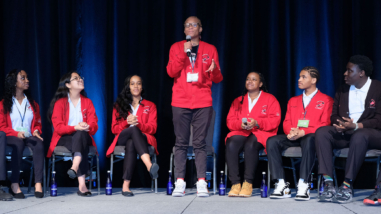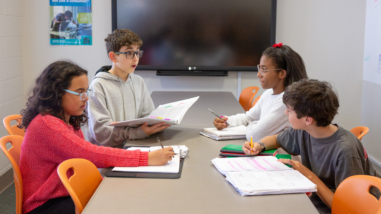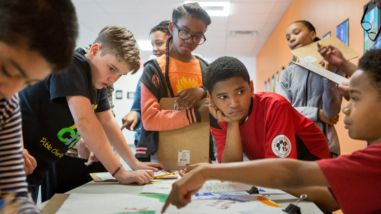University of Colorado Boulder
For Fostering Inclusive Math Learning For Emergent Bilinguals Through Interactive Simulations
-
Amount$125,000
-
Program
-
Date Awarded10/15/2020
-
Term12.0 Months
-
Type of SupportGeneral Support/Program
Strategies
Overview
University of Colorado Boulder’s PhET Interactive Simulations project creates interactive simulations to increase the effectiveness of teaching and learning in science, technology, engineering, and mathematics worldwide. With this grant, PhET will develop and pilot an interactive simulation to support K-1 mathematics learners in developing deep numbers sense. The project will focus on supporting emergent bilinguals’ participation and sensemaking in mathematics and will inform the Open Education strategy’s goal to ensure that OER is designed to be responsive for every learner. (Substrategy: Content, Tools, and Services)
About the Grantee
Grantee Website
www.cu.edu/regents
Address
3100 Marine Street, Rm. 481, Boulder, CO, 80304, United States
Grants to this Grantee
for support of an open access scientific teaching course
The University of Colorado Boulder is facilitating a multiorganization collaboration to develop, evaluate, and disseminate a digital, open-access scientific teaching course for college science instructors that fully integrates an AJEDI (anti-racist, just, equitable, diverse, and inclusive) approach to teaching. With this grant, the team will use an open pedagogy approach that draws on diverse instructor and student voices to co-create the course, comprising a set of self-guided modules designed to equip instructors with the tools and mindsets to create active and inclusive learning environments. (Substrategy: Content, Tools, and Services)
for support of a research hub that focuses on youth organizing
The National Education Policy Center, a nonprofit education research center housed at the University of Colorado Boulder, supports the Research Hub for Youth Organizing and Education Policy. In order to advance education justice, the hub conducts research and shares results and analyses with youth-organizing groups and coalitions. The goal of these efforts is to uplift and centralize the voices of marginalized youth to sustain a movement dedicated to improving education systems. (Strategy: Tie-Off)



